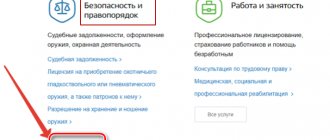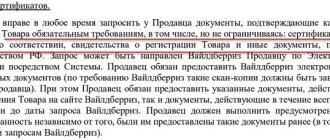On March 30, 2015, amendments were made to Article 173.2 of the Criminal Code. Now this article provides for punishment for making any changes to the register (Unified State Register of Legal Entities) of information about a figurehead. That is, changing a director or founder to a figurehead is now a crime. It sounds scary, but let's look at this article in detail.
Our company provides professional protection of witnesses, suspects and accused under Art. 173.1 and 173.2 of the Criminal Code of the Russian Federation. Contact in advance to avoid the worst consequences.
Part 1 art. 173.2 of the Criminal Code of the Russian Federation
Providing an identification document or issuing a power of attorney, if these actions were performed to enter information about a dummy person into the unified state register of legal entities, is punishable by a fine in the amount of one hundred thousand to three hundred thousand rubles or in the amount of the wages or other income of the convicted person for the period from seven months to one year, or by compulsory work for a period of one hundred eighty to two hundred and forty hours, or by corrective labor for a period of up to two years.
Part 2 art. 173.2 of the Criminal Code of the Russian Federation
The acquisition of an identity document or the use of personal data obtained illegally, if these acts were committed to enter information about a dummy person into the unified state register of legal entities, is punishable by a fine in the amount of three hundred to five hundred thousand rubles or in the amount of wages or other income of the convicted person for a period of one to three years, or forced labor for a term of up to three years, or imprisonment for the same period.
Note.
In this article, the acquisition of an identity document means its receipt on a paid or gratuitous basis, the appropriation of a found or stolen identity document, as well as its acquisition by deception or abuse of trust.
Article 173.1 of the Criminal Code of the Russian Federation. Illegal formation (creation, reorganization) of a legal entity
Article 174 of the Criminal Code of the Russian Federation. Legalization (laundering) of funds or other property acquired by other persons through criminal means
Table of contents
Commentary to Art. 173.2 of the Criminal Code of the Russian Federation
Commentary edited by Esakova G.A.
1. Parts 1 and 2 contain two independent elements of crime.
2. The objective side of the crime in Part 1 is the provision of an identification document or the issuance of a power of attorney to another person. The crime is considered completed from the moment the said documents are received by persons who will subsequently use them to form a legal entity.
3. Subjective side - direct intent and special purpose - entering information about a figurehead into the Unified State Register of Legal Entities.
4. The subject of the crime is a person who has reached the age of 16 years, is the legal owner of an identity document, or has issued a power of attorney to form a legal entity on his behalf.
A necessary condition for bringing to criminal liability is the awareness by the perpetrator that he is providing his identification documents or issuing a power of attorney to form a legal entity. Otherwise, criminal liability under Art. 173.2 of the Criminal Code is excluded.
5. In part 2 of Art. 173.2 of the Criminal Code establishes independent criminal liability for certain preparatory actions for the formation of a legal entity. The legislator included the acquisition of an identity document or the use of personal data obtained illegally. The acquisition of an identity document means its receipt for a fee or free of charge, the appropriation of a found or stolen identity document, as well as its acquisition by deception or abuse of trust.
6. The crime is considered completed from the moment of acquiring an identity document or using personal data.
7. The subjective side is characterized by direct intent and a special purpose (see commentary to part 1).
8. Special subject: a person who has reached the age of 16 years and has the intention of forming a legal entity using someone else’s documents. Criminal liability arises regardless of whether the person succeeded in “opening a company” or not.
Who is a “figurehead”
The legislator gave this term a very vague definition. It sounds like this: “Persons who are founders (participants) of a legal entity or management bodies of a legal entity and, by misleading or without whose knowledge, data about them was entered into the unified state register of legal entities, as well as persons who are management bodies of a legal entity persons who do not have the goal of managing a legal entity.” In everyday life, such persons are simply called “nominal”.
The entire content of this definition raises questions. What does misleading mean? If changes are made through notarized signing of the forms, then the applicant signs the form p13001 or p14001. In these documents, opposite the applicant’s signature, there are warnings that he is warned about responsibility for his actions. The new director actually signs under this text. In addition, the notary witnessing the signature is obliged to explain the contents of the document being signed, as well as to ensure the adequacy of the signatory. In particular, a notary should not certify the signature of an intoxicated person who signs a document under threat or deception.
Thus, it cannot be said that the applicant, who had his signature notarized, was misled. Otherwise, at a minimum, a notary must be involved as an accomplice.
As for the persons without whose knowledge data about them was entered, this situation is quite real. Such changes can be made when submitting documents via an electronic digital signature (EDS).
How can you become a figurehead?
Today the Internet is replete with advertisements for the sale of scans of passports, SNILS, TIN, etc. You can also get your digital signature remotely, via email. Thus, a person who really did not know and could not know about it could become a director or founder.
However, even in this case, it is not so easy to find the culprits. Executors - those who directly purchase and transfer scans of documents for the production of digital signatures, as a rule, work remotely. Communication with them is maintained only through the Internet. But even if you manage to find the performer, not everything is so simple. For the act to be guilty, the perpetrator must not only commit the actions provided for in Article 173.2, but also be aware of the criminality of his act. That is, it is reliable to know that the person on the passport does not want information about himself to be entered into the register.
Finally, “the person lacks a management goal.” We believe that this provision of the article is applicable only to the “denominations” themselves. It is possible to prove the absence of a target only by obtaining testimony about this from a suspect. True, the police usually have no problems with this (we’ll explain why below).
In our practice, there was a case when they tried to bring an ordinary (not nominal) director to justice. His “fault” was that, having registered the company, he simply forgot about it for a couple of years and did not conduct business. The police tried to accuse him of lacking the purpose of running the organization.
We believe that registration without management purposes is a subjective attitude of the person. As in the case of fraud, direct intent must be proven. This is proven exclusively by the testimony of suspects and witnesses.
Commentary on Article 173.2 of the Criminal Code of the Russian Federation
Commentary edited by A.V. Brilliantova
The article under comment contains two independent elements of crime. Part one involves responsibility for providing an identification document or issuing a power of attorney, and part two involves responsibility for acquiring such a document or using personal data obtained illegally. Both parts combine the goals of the corresponding acts - the formation (creation, reorganization) of a legal entity and the subsequent commission of one or more crimes related to financial transactions or transactions with funds or other property.
The object of the composition in question will coincide with the object of the crime provided for in Art. 173.1 of the Criminal Code of the Russian Federation.
The concept and procedure for the formation (creation, reorganization) of a legal entity is given in the commentary to Art. 173.1 of the Criminal Code of the Russian Federation.
The subject of the crime is an identity document or power of attorney.
The main document identifying a citizen of the Russian Federation is a passport of a citizen of the Russian Federation. If a passport is lost and before a new passport is issued, the citizen, at his request, is issued a temporary identity card by the territorial body of the Federal Migration Service.
Other documents (diplomatic passport, foreign passport, service passport, seaman’s passport (sailor’s identity card)) are only identification documents by which citizens of the Russian Federation enter and leave the Russian Federation, as well as certifying their identity outside the Russian Federation, in Therefore, their use on the territory of the Russian Federation, in particular for the formation of legal entities, is impossible.
The subject of the crime under consideration cannot be the military ID of a soldier, sailor, sergeant, sergeant major, warrant officer and midshipman as a document identifying them, since the participation of these categories of persons in business activities is expressly prohibited by Art. 27.1 of the Federal Law of May 27, 1998 N 76-FZ “On the status of military personnel.”
In accordance with Art. 10 of the Federal Law of July 25, 2002 N 115-FZ “On the legal status of foreign citizens in the Russian Federation”, identification documents of a foreign citizen in the Russian Federation are a passport of a foreign citizen or another document established by federal law or recognized in accordance with international agreement of the Russian Federation as an identification document of a foreign citizen.
Documents identifying a stateless person in the Russian Federation are:
1) a document issued by a foreign state and recognized in accordance with an international treaty of the Russian Federation as an identification document of a stateless person;
2) temporary residence permit;
3) residence permit;
4) other documents provided for by federal law or recognized in accordance with an international treaty of the Russian Federation as documents proving the identity of a stateless person (Part 2 of Article 10 of the said Federal Law).
Power of attorney in accordance with Art. 185 of the Civil Code of the Russian Federation recognizes a written authority issued by one person to another person for representation before third parties.
A power of attorney for transactions requiring a notarized form must be notarized. Other powers of attorney, the list of which is defined in Part 3 of Art. 185 of the Civil Code of the Russian Federation.
A power of attorney on behalf of a legal entity is issued signed by its head or another person authorized to do so by its constituent documents, with the seal of this organization attached.
The validity period of the power of attorney cannot exceed three years. If the term is not specified in the power of attorney, it remains valid for a year from the date of its execution. A power of attorney that does not indicate the date of its execution is void.
In accordance with Art. 187 of the Civil Code of the Russian Federation, the person to whom the power of attorney has been issued must personally perform those actions for which he is authorized. It can entrust their execution to another person if it is authorized to do so by a power of attorney or is forced to do so by force of circumstances to protect the interests of the person who issued the power of attorney. A necessary feature of a power of attorney used to commit the crime in question must be that the attorney is vested with the powers to make decisions or take actions to form a legal entity or powers related to its state registration.
The provision of false or invalid identification documents, as well as other documents not falling into this category, as well as the issuance of a power of attorney by an improper person or one that does not meet the requirements of the current legislation, does not constitute the crime in question due to their insignificance and the objective impossibility of using them in education and state registration of a legal entity.
The objective side of Part 1 of Art. 173.2 of the Criminal Code of the Russian Federation is expressed in the action of providing an identification document or issuing a power of attorney with their subsequent use for the formation (creation, reorganization) of a legal entity.
The provision of an identity document can be expressed both in the transfer of these documents to third parties to create a legal entity (for example, when preparing constituent documents), and in the presentation of these documents to persons or bodies in the process of creating a legal entity (for example, providing documents to a notary when certifying signature on the application for state registration in the prescribed form) or direct presentation of this document to an employee of the registration authority when submitting documents for state registration of a legal entity as an applicant.
The issuance of a power of attorney in relation to the composition in question should be understood as the signing (and, if necessary, sealing on behalf of a legal entity) of a power of attorney with the authority to represent the interests of the principal in the formation of a legal entity and (or) performing actions related to its registration, and delivery (in person or through third parties) to the attorney of such power of attorney.
The elements of the crime are formal, and the moment of its completion should be considered the moment of receipt of an identification document or power of attorney by the addressee, and in the case of their presentation to prove identity or authority - from the moment of such presentation.
Communication of personal data or details of an identity document (power of attorney), without providing them with the corpus delicti provided for in Part 1 of Art. 173.2 of the Criminal Code of the Russian Federation, does not form.
Subject Part 1 Art. 173.2 of the General Criminal Code of the Russian Federation. They can be any individual who has provided an identification document (both their own and that of third parties) or who has issued a power of attorney. If the power of attorney comes from a legal entity, the person (for example, the general director as the sole executive body) who issued such a power of attorney in accordance with his powers is subject to liability.
Persons who organized such actions, incited them (for example, by bribery) or assisted the perpetrator in their commission are subject to criminal liability as accomplices with reference to Art. 33 of the Criminal Code of the Russian Federation.
The subjective side presupposes guilt in the form of direct intent and the presence of actually two sequential goals - the formation of a legal entity and the subsequent commission with its use of one or more crimes related to financial transactions or transactions with funds or other property.
On the concept of financial transactions and transactions with funds or other property, see the commentary to Art. 174 of the Criminal Code of the Russian Federation.
In this case, for qualification it does not matter whether the formation of a legal entity was planned exclusively for criminal activities or whether such an organization was intended to participate in other (legal) activities.
The existence of a crime is also not affected by the very fact of creation (state registration) of such a legal entity, much less the commission of the described crimes with its use. It is only necessary that the perpetrator pursues the specified goals when providing a document or issuing a power of attorney.
Misleading the person who presented the document or issued the power of attorney regarding the criminal purposes of creating a legal entity is criminal liability under Part 1 of Art. 173.2 of the Criminal Code of the Russian Federation excludes.
The motives for committing this crime do not affect qualifications.
Part 2 Art. 173.2 provides for liability for the acquisition of an identity document or the use of personal data obtained illegally for the same purpose. Part two, in addition to the identification document, involves performing actions with an alternative item - personal data obtained illegally.
Personal data should be understood as any information relating directly or indirectly to a specific or identifiable individual (subject of personal data) (Clause 1, Article 3 of the Federal Law of July 27, 2006 N 152-FZ “On Personal Data”).
In relation to the purposes of this article, only personal data included in the constituent documents, as well as in documents submitted to the registration authority upon formation (creation, reorganization) of a legal entity, have criminal legal significance. These, in particular, should include the surname, first name, patronymic of the citizen; date and place of birth; address; subscriber number; details of identity documents, TIN.
In accordance with Art. 7 of this Federal Law, the basis for the disclosure and dissemination of personal data is the consent of the individual owner.
Any acquisition by the perpetrator (or third parties) of a person’s personal data without his or her consent should be considered illegal. An exception is information about a person located in publicly available sources of personal data (including directories, address books, etc.). Such sources, with the written consent of the subject of personal data, may include his last name, first name, patronymic, year and place of birth, address, subscriber number, information about profession and other personal data reported by the subject of personal data (Article 8 of the Federal Law).
If the method of obtaining personal data was criminal (for example, as a result of committing crimes under Articles 138, 139, 272 of the Criminal Code of the Russian Federation, etc.), the perpetrators are subject to criminal liability under the relevant articles of the Criminal Code of the Russian Federation.
Any information (data) about legal entities does not relate to the subject of this crime.
The objective side of the crime provided for in Part 2 of Art. 173.2 of the Criminal Code of the Russian Federation, form:
1) acquisition of an identity document, the concept of which (acquisition) is defined in the note to this article;
2) the use of illegally obtained personal data, which should be understood as the inclusion of this data in the constituent documents or other documents submitted to the state registration authority when forming a legal entity.
The corpus delicti is formal and is considered complete:
1) in relation to an identity document - from the moment of its acquisition (reception) by the addressee (regardless of the fact of its subsequent use);
2) in relation to personal data - from the moment any of this data is entered into the constituent documents or other documents submitted to the registration authority. The fact of submitting documents for state registration, making a decision on state registration of a legal entity, etc. to qualify the offense under Part 2 of Art. 173.2 of the Criminal Code of the Russian Federation has no effect.
The norm in question is special in relation to Art. Art. 324 and 325 of the Criminal Code of the Russian Federation, and therefore, when qualifying the actions of the perpetrator under Part 2 of Art. 173.2 of the Criminal Code of the Russian Federation, the imputation of these crimes is unnecessary.
The general subject of the crime is a person who has acquired an identity document or uses personal data known to be obtained illegally.
The content of the subjective side corresponds to that described in part one of the article under consideration.
Why do the police need accomplices?
The fact is that the first part of Art. 173.2 is a crime of minor gravity and the period for prosecution under it is only 3 years. This period, as a rule, expires by the time the event is identified, and here we still need to add the investigation and trial.
Firstly, the second part of the article is a crime of medium gravity. And secondly, it has a duration of 6 years, which is more than enough for any investigation. Therefore, it is beneficial for the police to catch not only the denomination, but also other participants.



